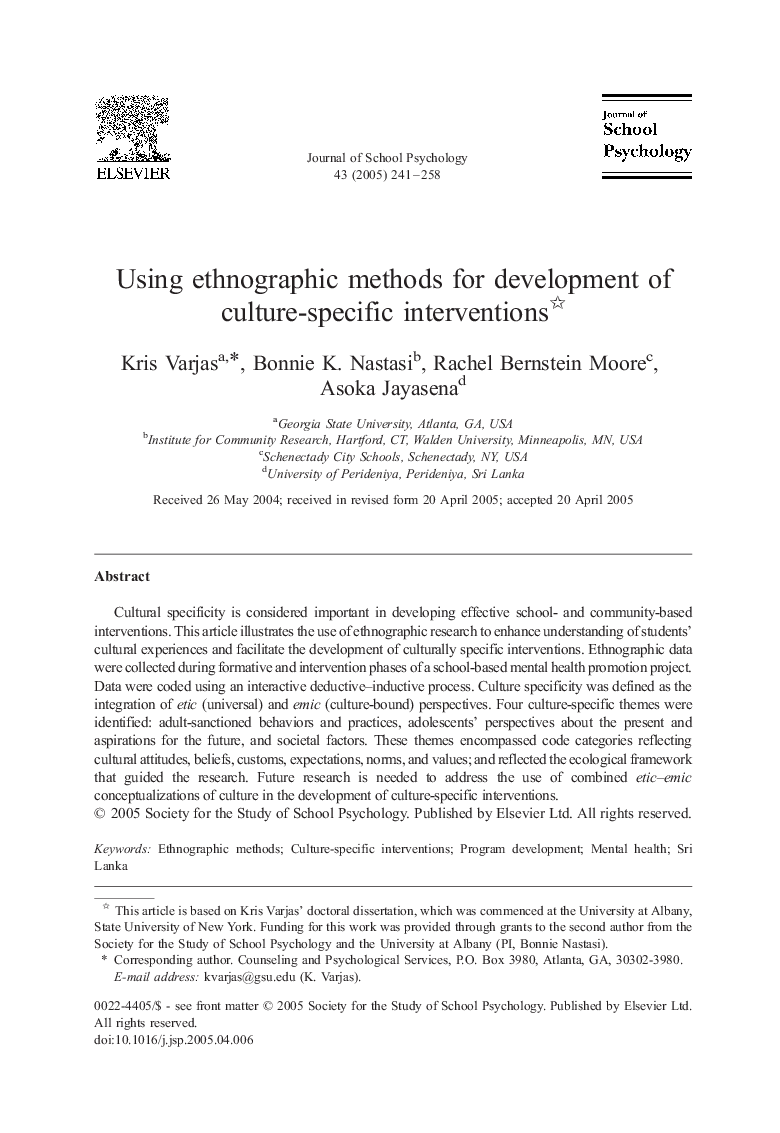| Article ID | Journal | Published Year | Pages | File Type |
|---|---|---|---|---|
| 10315231 | Journal of School Psychology | 2005 | 18 Pages |
Abstract
Cultural specificity is considered important in developing effective school- and community-based interventions. This article illustrates the use of ethnographic research to enhance understanding of students' cultural experiences and facilitate the development of culturally specific interventions. Ethnographic data were collected during formative and intervention phases of a school-based mental health promotion project. Data were coded using an interactive deductive-inductive process. Culture specificity was defined as the integration of etic (universal) and emic (culture-bound) perspectives. Four culture-specific themes were identified: adult-sanctioned behaviors and practices, adolescents' perspectives about the present and aspirations for the future, and societal factors. These themes encompassed code categories reflecting cultural attitudes, beliefs, customs, expectations, norms, and values; and reflected the ecological framework that guided the research. Future research is needed to address the use of combined etic-emic conceptualizations of culture in the development of culture-specific interventions.
Related Topics
Social Sciences and Humanities
Psychology
Applied Psychology
Authors
Kris Varjas, Bonnie K. Nastasi, Rachel Bernstein Moore, Asoka Jayasena,
